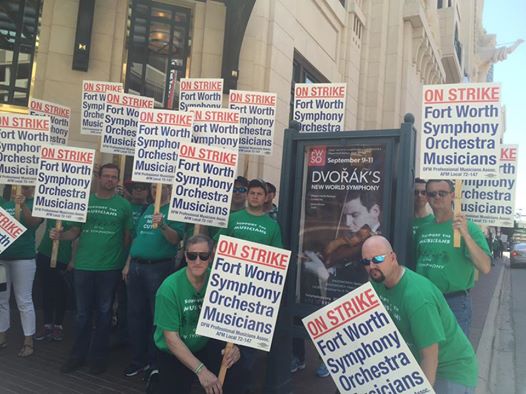Why the Wall St Journal is wrong on the Pittsburgh strike
mainThe ever-readable Terry Teachout argues today in the Journal that orchestral musicians should not expect to be paid more in 2016 because two generation ago they were paid far less.
In a closing paragraph: Orchestra players would do well to remember how far they’ve come. Six decades ago, the members of one of the world’s greatest symphony orchestras sold cars and wristwatches to make ends meet. They didn’t deserve it then and they don’t deserve it now—but that’s the kind of thing that can end up happening in a world that doesn’t value your services as highly as you do.
There are horrible cracks in this argument and I can’t enumerate them all, but these are the main ones.
1 Terry mentions the value of services. He’s right. Isaac Stern told me that when he was growing up in 1920s San Francisco ‘a musician in the orchestra was a person‘ – even if he earned a pittance. He had social status. As that status declined it had to be replaced with other compensations or orchestral life would have ceased to exist. So wages rose.
2 Orchestras live off prestige. They need to attract the best players they can afford. If you pay them less than the market rate, they will go to LA or New York and Pittsburgh (or wherever) will lose whatever glory it needs to persuade donors to fund its continued existence and the public to attend concerts.
3 Six decades ago, people who worked in banking received modest compensation. How long does the Wall Street Journal think Goldman Sachs would survive if it paid 1950s rates?
4 An orchestra is a dynamic organism. It composition and internal relationships have changed beyond recognition in Terry’s lifetime and mine. The conductor used to be a dictator; today the role is more a negotiator. The ensemble used to be overwhelmingly male; now it might be majority female. Past comparisons become futile in such circumstances.
5 In Pittsburgh and Fort Worth – and in Philadelphia – an aggressive board and an overpaid manager tried to force musicians to accept ‘inevitable’ pay cuts. Not to forgo a pay increase but actually to take a step back into the half-forgotten past and forgo a decent wage, knowing that next time round they will have to give up even more. There was no negotiation, only ultimatum.
6 We have published testimony from musicians in these orchestras – a single parent, for instance – who simply cannot live on what the orchestra pays. So how does that differ from the indigent past?






Comments